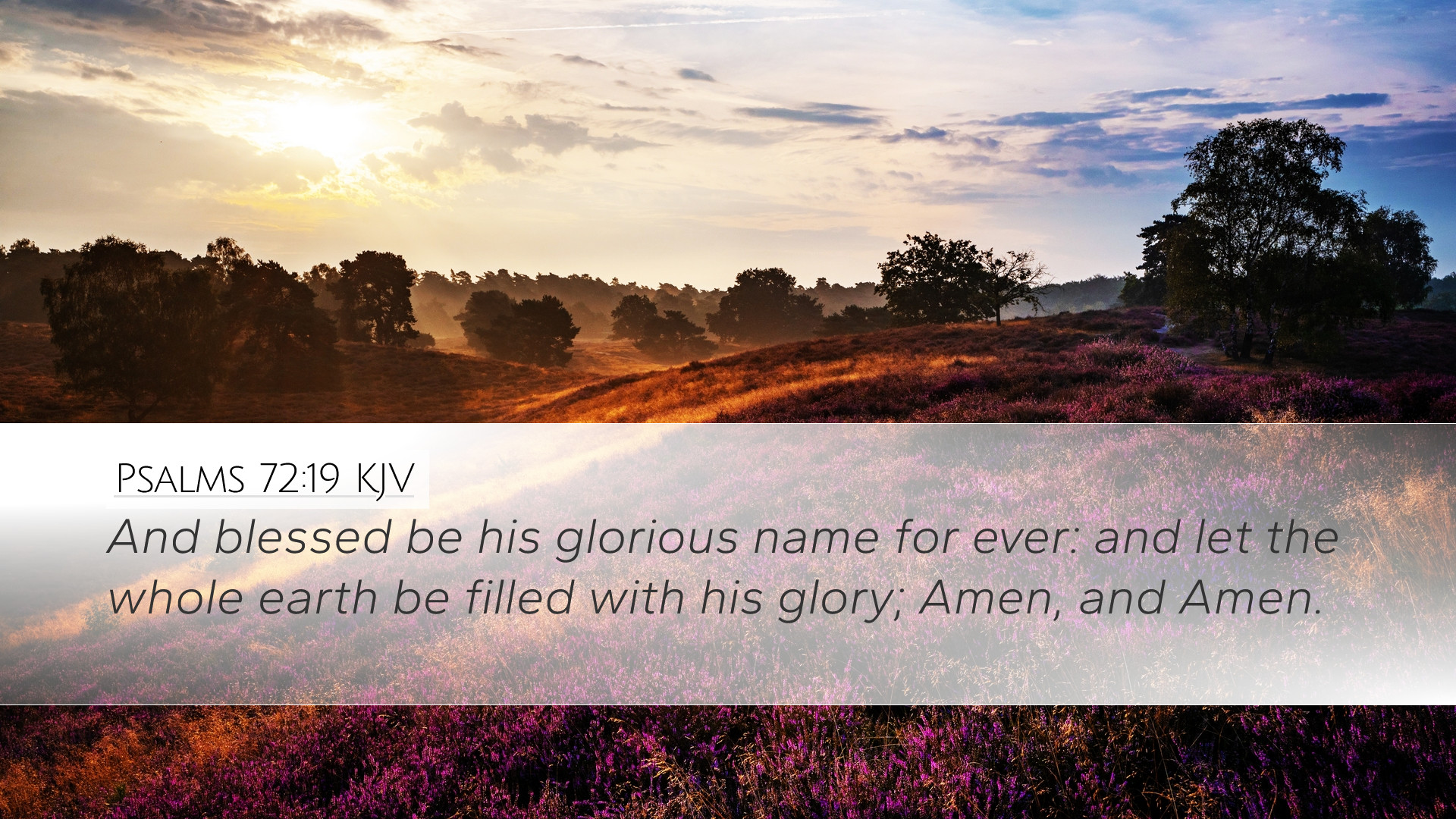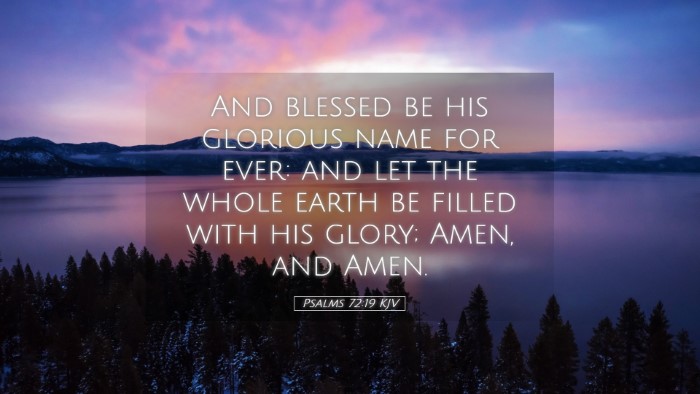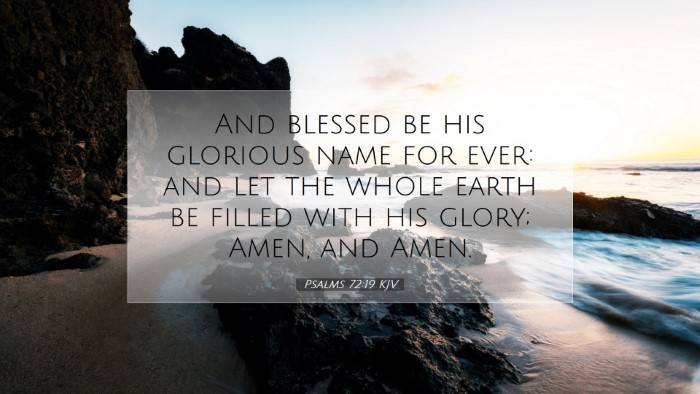Commentary on Psalms 72:19
Bible Verse: "And blessed be his glorious name forever: and let the whole earth be filled with his glory; Amen, and Amen." (Psalm 72:19, KJV)
Introduction
The concluding verses of Psalm 72 encapsulate themes of divine glory, the fulfillment of God's promises, and the anticipation of universal recognition of God's sovereignty. This commentary will synthesize insights from various public domain commentaries, providing a profound understanding of Psalm 72:19.
Meaning of the Verse
The verse serves as a doxology, expressing profound reverence and a desire for God's glory to permeate all creation. Each part of the verse carries significant theological weight.
"And blessed be his glorious name forever"
Matthew Henry notes that the name of God represents His character and essence, which is to be blessed eternally. The term 'glorious' stresses the divine attributes, inviting worship and praise from all of creation. His glorious name is an everlasting source of truth and hope.
"and let the whole earth be filled with his glory"
Albert Barnes emphasizes that this line reflects the ultimate goal of God's reign. The prayer suggests that the earth should recognize and reflect God's glory in a total and unrestrained manner. The desire for the earth's fullness speaks to the messianic hope found throughout the Psalms, where the reign of the Messiah brings comprehensive peace and righteousness.
"Amen, and Amen"
Adam Clarke points out that the repetition of 'Amen' underscores an affirmation of faith, signaling total agreement with the sentiments expressed in the verse. It serves as a liturgical conclusion that reflects the collective hope of the faithful, an acknowledgement that what has been requested should indeed come to pass.
Theological Implications
This verse provides deep theological insight into the nature of worship and the mission of humanity to glorify God.
1. The Nature of God’s Glory
- Universal Sovereignty: The desire for the earth to be filled with His glory implies that God's rule and presence should extend to all peoples and nations. God’s glory is not confined to Israel alone but is intended for universal recognition.
- Eternal Praise: The call to bless God’s name forever reflects the eternal nature of God’s glory, suggesting that worship will continue in the eschatological future.
2. Human Responsibility in Worship
- Recognizing God’s Glory: Believers are called to acknowledge and testify about God's magnificence, allowing it to shape their lives and communities.
- Evangelistic Mandate: By praying for the earth to be filled with God’s glory, there is an implicit call for evangelism, reaching out to the lost so they too may glorify God.
3. Messianic Anticipation
- Fulfillment in Christ: The aspirations in this verse are seen as ultimately fulfilled in Jesus Christ, the Messiah, who brings salvation and reconciliation, ushering in the Kingdom of God.
- Hope for the Nations: The longing expressed for the earth's fullness of God’s glory encompasses a vision of redemption that includes all nations, pointing towards a future where every knee shall bow.
Application for Today
Psalms 72:19 calls modern believers to reflect on their worship and their mission in the world.
- Worship: Are we actively blessing and glorifying God's name in our churches and lives? Our worship should reflect a deep-seated awe and reverence for God's character.
- Global Perspective: This verse underscores the need for a global vision in ministry. Engaging with issues of justice, mercy, and evangelism reflects God’s glory in action.
- Anticipating the Kingdom: Believers are encouraged to live in hopeful expectation of God’s coming kingdom, where His glory will be fully manifested.
Conclusion
The sentiments expressed in Psalm 72:19 serve as a powerful reminder for believers to recognize and proclaim the glory of God. It encapsulates a hope rich in theological meaning for worship, outreach, and justice, culminating in the expectation of God’s ultimate reign over the earth. In this verse, we find an exhortation that speaks to our role as heralds of God's love and glory in a world that desperately needs it.


